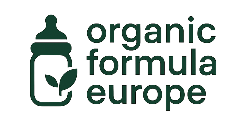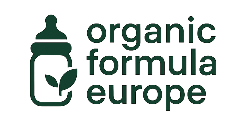Holle BIO Stage 2
-
Holle Organic Goat Formula - Stage 2
Regular price From $137.96Sale price From $137.96 Regular price $0.00Unit price / per -
Holle Organic Baby Formula - Stage 2
Regular price From $139.96Sale price From $139.96 Regular price $0.00Unit price / per -
Holle Goat Dutch Formula - Stage 2
Regular price From $184.47Sale price From $184.47 Regular price $0.00Unit price / per
Understanding Holle Bio Stage 2: The Perfect Follow-On Formula for Your Growing Baby
When your little one reaches the exciting milestone of six months, their nutritional needs begin to evolve beyond what breast milk or infant formula alone can provide. Holle Bio Stage 2 represents a thoughtfully crafted follow-on formula designed specifically for babies aged 6 months and older, supporting their developmental journey during this crucial growth phase.
Made with the finest organic ingredients sourced from biodynamic farms across Europe, this premium formula provides the essential nutrients your baby needs as they begin exploring solid foods. Whether you're transitioning from Holle Bio Stage 1 or introducing formula for the first time, Holle Bio Stage 2 offers a gentle, nourishing option that complements your baby's expanding diet.
What Makes Holle Bio Stage 2 Special?
Premium Organic Ingredients
Every box of Holle Bio Stage 2 contains 600g of carefully formulated powder, created from the highest quality organic milk sourced from Demeter-certified biodynamic farms. These farms maintain the strictest standards for animal welfare and environmental sustainability, ensuring that every ingredient meets exceptional purity requirements.
The formula features organic lactose as its primary carbohydrate source, providing natural sweetness while supporting healthy digestion. Additionally, organic maltodextrin and starch are included to create a creamy, satisfying texture that helps keep your baby fuller for longer periods between feedings.
Nutritional Excellence for Growing Bodies
As your baby develops, their nutritional requirements become more complex. Holle Bio Stage 2 is enriched with essential vitamins and minerals including calcium for strong bones and teeth, iron for healthy blood development, and vitamins A, C, D, and B12 for overall growth and immune support. The carefully balanced nutrient profile ensures your baby receives comprehensive nutrition during this vital developmental stage.
Holle Bio Stage 2 Instructions: Proper Preparation for Optimal Nutrition
Step-by-Step Preparation Guide
Preparing Holle Bio Stage 2 correctly ensures your baby receives all the nutritional benefits while maintaining safety standards. Following the holle bio formula stage 2 instructions english precisely is essential for your baby's health and wellbeing.
First, always wash your hands thoroughly and ensure all feeding equipment is properly sterilized. Begin by boiling fresh drinking water and allowing it to cool to approximately 50°C (122°F). This temperature is crucial for preserving the formula's nutritional integrity while ensuring harmful bacteria are eliminated.
Pour half of the required water amount into the sterilized bottle. Using only the provided measuring spoon, add the appropriate number of level scoops according to the feeding chart. One flattened measuring spoon equals 4.5g of formula powder. Close the bottle and shake thoroughly to begin dissolving the powder.
Add the remaining water and shake again until the formula is completely dissolved with no lumps. Cool the prepared formula to drinking temperature, approximately 37°C (98.6°F), by holding the bottle under cold running water. Always test the temperature on your wrist before feeding to ensure it's not too hot for your baby's sensitive mouth.
Important Safety Considerations
Fresh preparation is essential for your baby's health. Always prepare bottles immediately before feeding and discard any leftover formula after one hour. Never reheat formula in the microwave as this can create dangerous hot spots and destroy valuable nutrients. The recommended drinking amounts are guidelines only, as every baby's appetite varies naturally throughout the day.
Holle Bio Stage 2 Goat Milk Instructions: A Gentle Alternative
Special Considerations for Goat Milk Formula
For parents choosing Holle Goat Milk Formula, the Stage 2 option provides an excellent alternative to cow's milk-based formulas. Goat milk naturally contains smaller fat globules and different protein structures that many babies find easier to digest.
The holle bio stage 2 goat milk instructions follow the same careful preparation process as the cow milk version, with the same attention to temperature control and hygiene. The goat milk formula contains whole organic goat milk, organic lactose, and a blend of organic vegetable oils, providing complete nutrition while being gentle on sensitive tummies.
Benefits of Goat Milk Formula
Goat milk formula can be particularly beneficial for babies who experience minor digestive discomfort with cow's milk formulas. The naturally lower lactose content and unique protein composition may help reduce symptoms like gas, bloating, or mild constipation. Additionally, the Demeter-certified goat milk used in Holle's formula comes from animals raised with the highest welfare standards, grazing on pristine organic pastures.
Transitioning to Holle Bio Stage 2
When to Make the Switch
Most babies are ready to transition to Stage 2 formula around six months of age, coinciding with the introduction of solid foods. Signs your baby may be ready include showing interest in food, sitting up with support, and seeming hungry even after full feeds of Stage 1 formula or breast milk.
The transition should be gradual to allow your baby's digestive system to adjust. Start by replacing one feeding per day with Stage 2 formula, then gradually increase over the course of a week. Monitor your baby for any signs of digestive upset and consult your pediatrician if you have concerns.
Supporting Your Baby's Development
During this exciting phase of growth, Organic Formulas like Holle Bio Stage 2 play a crucial supporting role alongside the introduction of solid foods. The formula continues to provide essential nutrition while your baby explores new tastes and textures, ensuring no nutritional gaps during this transition period.
Storage and Handling Guidelines
Maintaining Formula Freshness
Proper storage of Holle Bio Stage 2 ensures your baby receives fresh, nutritious formula with every feeding. Store unopened boxes in a cool, dry place away from direct sunlight. Once opened, transfer the powder to an airtight container if not using the original packaging's resealable feature.
Use opened formula within three weeks for optimal freshness and nutritional value. Always check the expiration date, which follows the European format of DD/MM/YYYY, before preparing bottles. Holle formulas typically arrive with at least six months of shelf life remaining, providing ample time for use.
Travel and Convenience Tips
When traveling or out and about, pre-measure formula powder into portable containers for convenient preparation. Bring a thermos of water heated to the appropriate temperature, allowing you to prepare fresh bottles wherever you go. Never pre-mix formula for later use, as this increases the risk of bacterial growth.
Making the Most of Holle Bio Stage 2
Feeding Schedule Recommendations
While every baby is unique, general guidelines suggest 3-4 bottles daily for babies aged 6-12 months, alongside solid food meals. One 600g box of Holle Bio Stage 2 produces approximately 153 fluid ounces of prepared formula, equivalent to about 30 bottles of 5 ounces each.
Remember that as your baby increases solid food intake, formula consumption may naturally decrease. This is normal and healthy, as long as your baby continues to grow and develop appropriately. Always consult with your pediatrician about your baby's individual nutritional needs.
Complementing Solid Foods
Holle Bio Stage 2 serves as an ideal nutritional complement to your baby's expanding diet. As you introduce vegetables, fruits, and grains, the formula ensures your baby continues receiving essential nutrients that may be lacking in early solid foods. This balanced approach supports optimal growth and development during this crucial period.
FAQS
What is the difference between Holle Bio Stage 1 and Stage 2?
Holle Bio Stage 2 contains additional starch and maltodextrin compared to Stage 1, making it more filling and suitable for older babies. Stage 2 is specifically formulated for babies 6 months and older who are beginning to eat solid foods, while Stage 1 is designed for newborns through 6 months. The nutrient profile is also adjusted to meet the changing needs of growing babies.
Can I switch directly from breast milk to Holle Bio Stage 2?
Yes, you can transition directly from breast milk to Holle Bio Stage 2 if your baby is 6 months or older. Start slowly by replacing one breastfeeding session with formula and gradually increase over several days. This allows both you and your baby to adjust comfortably to the change while monitoring for any digestive concerns.
How many scoops of Holle Bio Stage 2 per ounce of water?
According to the holle bio stage 2 instructions, use 1 level scoop of powder for every 30ml (1 fluid ounce) of water. For example, a 5-ounce bottle requires 5 scoops of formula powder mixed with 150ml of water. Always use the measuring scoop provided in the box for accurate measurements.
Is Holle Bio Stage 2 suitable for babies with sensitive stomachs?
Holle Bio Stage 2 is made with high-quality organic ingredients and contains no artificial additives, making it generally well-tolerated. However, if your baby has known sensitivities, you might consider trying HiPP Comfort Formula or the goat milk version of Holle Stage 2, which some babies find easier to digest.
How long does a box of Holle Bio Stage 2 last?
A 600g box of Holle Bio Stage 2 typically lasts 5-7 days for a baby consuming 4-5 bottles daily. This can vary based on your baby's individual appetite and how much solid food they're eating. Once opened, the formula should be used within 3 weeks for optimal freshness and nutritional value.
Can I use tap water to prepare Holle Bio Stage 2?
You can use tap water if it's safe for drinking and low in sodium and nitrates. Always boil the water first and let it cool to the appropriate temperature. If you're unsure about your tap water quality, consider using bottled water specifically labeled as suitable for infant formula preparation.







